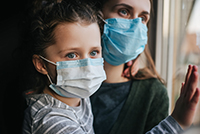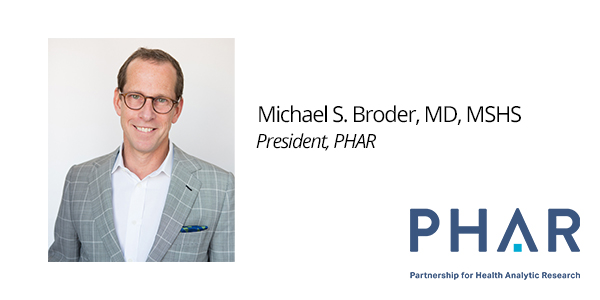 As of October 2, 2020, the novel coronavirus has infected more than 34 million people, including President Donald J. Trump and First Lady Melania Trump, and killed over one million, resulting in a global economic decline on a scale not seen since the Great Depression.
As of October 2, 2020, the novel coronavirus has infected more than 34 million people, including President Donald J. Trump and First Lady Melania Trump, and killed over one million, resulting in a global economic decline on a scale not seen since the Great Depression.
It’s easy to get discouraged about these numbers, but we as HEOR professionals can actually do something concrete to help.
In my career as an academic physician at UCLA, RAND researcher, author, and the leader of an HEOR consultancy, I’ve learned something important: it’s hard for lay people to understand health research, even when it’s presented in a distortion-free environment.
If you work in HEOR, regardless of your training, you likely know more than nearly all of your friends and family about drug development, statistics, public health, study design, and a host of other relevant topics.
And what you can do right now to beat this disease is NOT BE SILENT.
 Don’t be silent when a friend or relative says the FDA is withholding approval of COVID-19 treatments. Explain that the “35% mortality reduction” recently touted by FDA Commissioner Hahn for convalescent plasma comes from a post-hoc analysis of a small sample without a comparison group. And as any first year HEOR fellow knows, a 35% absolute risk reduction (e.g., from 40% to 5%) is very different from a 35% relative risk reduction (2% down to 1.7% mortality). In the convalescent plasma case, even that small reduction wasn’t statistically significant! As the NEJM wrote in a recent editorial excoriating the federal response, “truth is neither liberal nor conservative.”
Don’t be silent when a friend or relative says the FDA is withholding approval of COVID-19 treatments. Explain that the “35% mortality reduction” recently touted by FDA Commissioner Hahn for convalescent plasma comes from a post-hoc analysis of a small sample without a comparison group. And as any first year HEOR fellow knows, a 35% absolute risk reduction (e.g., from 40% to 5%) is very different from a 35% relative risk reduction (2% down to 1.7% mortality). In the convalescent plasma case, even that small reduction wasn’t statistically significant! As the NEJM wrote in a recent editorial excoriating the federal response, “truth is neither liberal nor conservative.”
 Don’t be silent if you hear someone say “a vaccine may be available by the fall.” It will take you 60 seconds to explain the difference between phase 1, 2, and 3 trials and only 30 more to tell people not to rely on results that haven’t been peer-reviewed or come from animal models.
Don’t be silent if you hear someone say “a vaccine may be available by the fall.” It will take you 60 seconds to explain the difference between phase 1, 2, and 3 trials and only 30 more to tell people not to rely on results that haven’t been peer-reviewed or come from animal models.
You can help people understand that what that really means is “we hope to have at least one phase 3 trial with a positive outcome conclude by the fall.” And that responsible authorities like Anthony Fauci, MD, Director of the NIH National Institute of Allergy and Infectious Diseases, have said most people likely won’t to get access to a vaccine until mid to late 2021.
We’ve all watched drugs enter phase 3 full of promise and never reach the market because they failed to prove their efficacy or had unexpected safety issues, as we have already seen happen. Sharing that perspective will make clear that while a vaccine may be coming, it won’t be here soon enough to give up on masks.
 Don’t be silent when you see political interference chip away at our science-based institutions. I’ve relied on data collected by the CDC or reported in the MMWR thousands of times—I’m sure you have, too. Tell people why it’s bad when politicians substitute their judgement for those of career scientists. Politicians are (appropriately) responsible for many decisions during this pandemic—when to require masks, when bars should open or close—and they can be held accountable at the next election, but politicians, Republicans, and Democrats alike, need facts to inform their decisions. These facts can and should come from career scientists at the FDA, CDC, NIH, and other trusted institutions.
Don’t be silent when you see political interference chip away at our science-based institutions. I’ve relied on data collected by the CDC or reported in the MMWR thousands of times—I’m sure you have, too. Tell people why it’s bad when politicians substitute their judgement for those of career scientists. Politicians are (appropriately) responsible for many decisions during this pandemic—when to require masks, when bars should open or close—and they can be held accountable at the next election, but politicians, Republicans, and Democrats alike, need facts to inform their decisions. These facts can and should come from career scientists at the FDA, CDC, NIH, and other trusted institutions.
 Don’t be silent when someone implies that any strategy other than mask wearing has a realistic hope of reducing infections and death in the next year. In medical practice, I found that that the most dangerous myths were the ones that kept people from doing the simple things that actually worked (like asthma patients who won’t use their inhaler so their body doesn’t get “used to it”). When people believe a vaccine is around the corner, they may be less inclined to be careful now.
Don’t be silent when someone implies that any strategy other than mask wearing has a realistic hope of reducing infections and death in the next year. In medical practice, I found that that the most dangerous myths were the ones that kept people from doing the simple things that actually worked (like asthma patients who won’t use their inhaler so their body doesn’t get “used to it”). When people believe a vaccine is around the corner, they may be less inclined to be careful now.
 Don’t be silent in identifying data sources. Point misinformed people to the New York Times Coronavirus Vaccine Tracker and the companion Coronavirus Drug and Treatment Tracker where they can get real-time information, without spin. Another reputable resource is HealthNewsReview.Org. Although it’s not updated as often as it used to be, the publisher, Gary Schwitzer, still writes insightful commentaries on COVID-related news. Send people to Our World in Data, where they can find daily updated case counts from around the world.
Don’t be silent in identifying data sources. Point misinformed people to the New York Times Coronavirus Vaccine Tracker and the companion Coronavirus Drug and Treatment Tracker where they can get real-time information, without spin. Another reputable resource is HealthNewsReview.Org. Although it’s not updated as often as it used to be, the publisher, Gary Schwitzer, still writes insightful commentaries on COVID-related news. Send people to Our World in Data, where they can find daily updated case counts from around the world.
Help stop this pandemic. Save lives. Share the facts. Don’t be silent.
About the author:
 Dr. Michael Broder, a board-certified obstetrician and gynecologist, has 30 years’ experience in health economic and outcomes research. He received his research training in the Robert Wood Johnson Clinical Scholars Program at UCLA and RAND, attended medical school at Case Western Reserve University, and received his undergraduate degree from Harvard University.
Dr. Michael Broder, a board-certified obstetrician and gynecologist, has 30 years’ experience in health economic and outcomes research. He received his research training in the Robert Wood Johnson Clinical Scholars Program at UCLA and RAND, attended medical school at Case Western Reserve University, and received his undergraduate degree from Harvard University.
In 2004, Dr. Broder founded PHAR, a clinically-focused health economics and outcomes research consultancy. PHAR is a team of dedicated, highly trained researchers —individuals who are singularly focused on delivering high-quality health economics and outcomes research insights to the life science industry. PHAR has successfully conducted hundreds of studies resulting in more than 800 publications on a wide variety of therapeutic areas, and maintains an expansive network of collaborators, including 8 of the top 10 academic institutions in the US, as measured by NIH funding. Download our bibliography here.
Unencumbered by corporate bureaucracy, PHAR can efficiently execute contracts and complete projects on time and on budget. PHAR prides itself on being reliable and responsive to clients’ changing needs, and welcoming the challenge of tackling problems others can’t.














